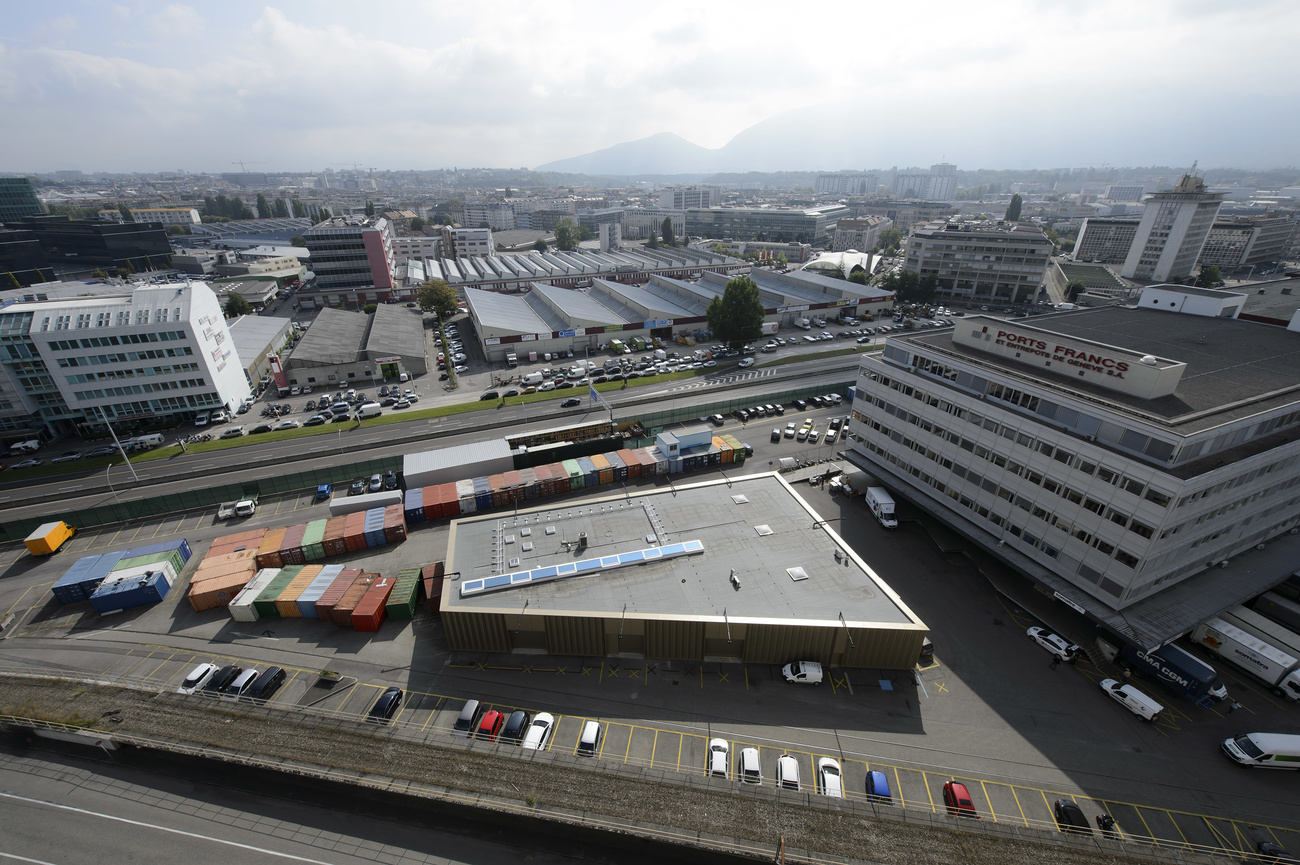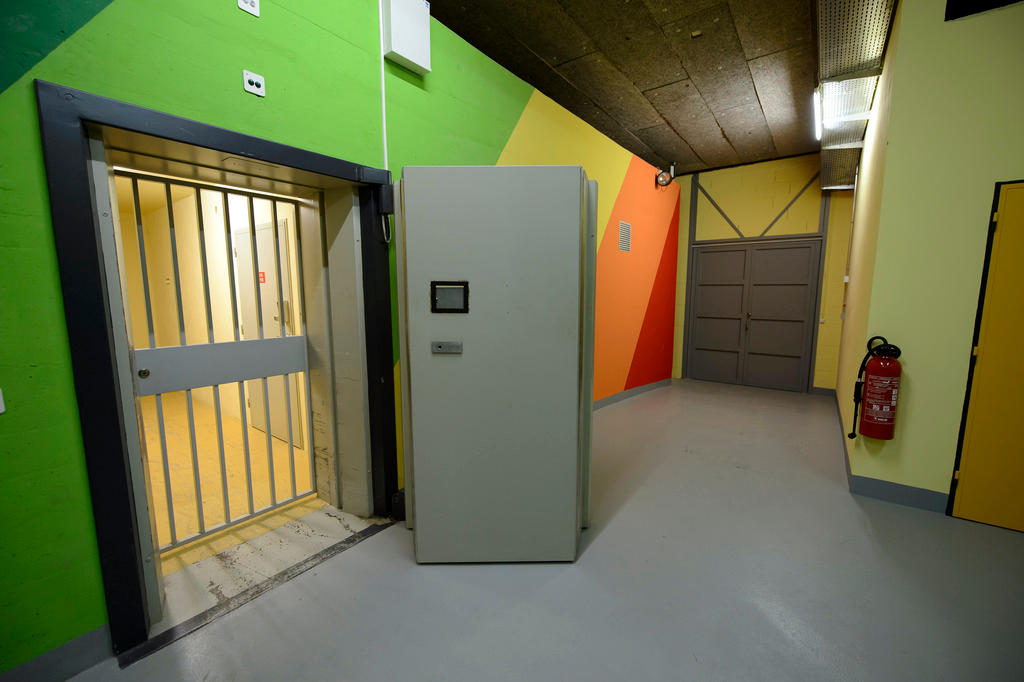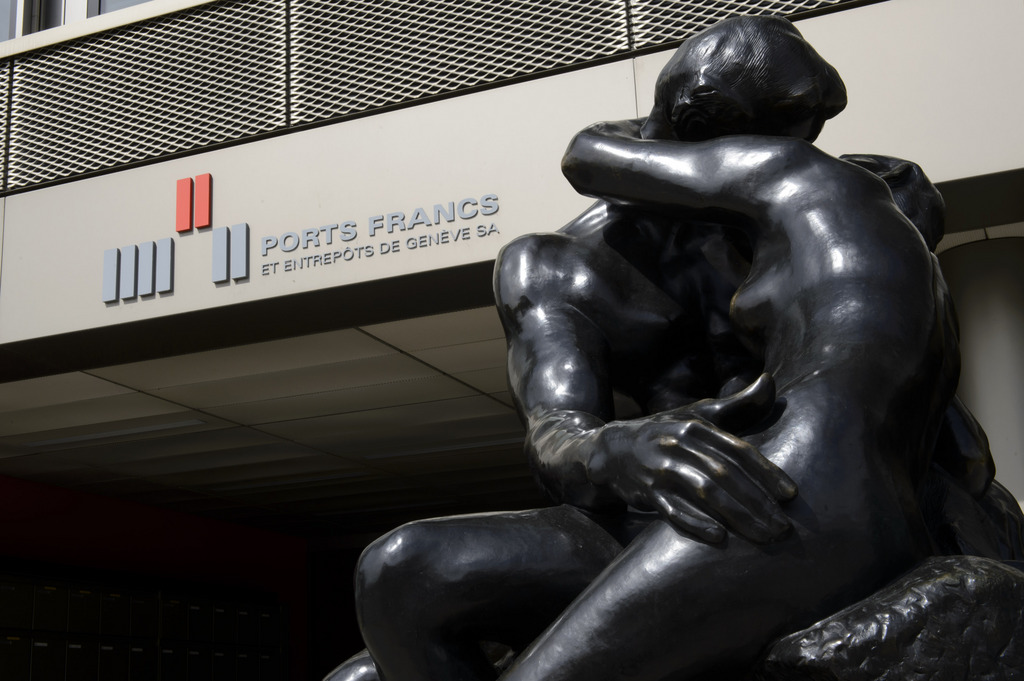Russian war in Ukraine renews pressure on Swiss free ports

The Russian war in Ukraine is putting free ports around the world under the microscope. A major question is whether these storage warehouses for valuable goods are being used by sanctioned individuals to hide assets. Swiss authorities don’t have a clear answer.
Since the outbreak of the war in Ukraine, Switzerland has faced increasing scrutiny over its handling of Russian assets. So far, the Swiss government has frozen CHF6.3 billion ($6.33 billion) worth of Russian assets and confiscated 11 properties. This came after Switzerland broke away from its history of political neutrality and adopted sanctions against Russian individuals and entities in line with the European Union. But free ports – including their exact contents and ownership – still remain largely behind closed doors and mostly inaccessible to Swiss authorities chasing assets on the sanctions’ list.
Free ports are large warehouses where merchandise can be stored without being subject to import tax and duties. Secrecy and confidentiality are inherent to how they operate. Switzerland houses seven of them and another 174 open customs warehouses. Both serve similar functions but a key difference is that customs authorities are stationed on-site at free ports.
The current war has only pushed free ports – and their culture of secrecy – back into the forefront, with criticism from experts arguing that regulations are letting some Russian assets fall through the cracks. There is no official data on Russian assets sitting in Swiss free ports. The Geneva Freeport did not reply to a request for comment at the time of writing. “It is difficult for us to assess the current situation in the free ports,” the Swiss Federal Audit Office (SFAO) said.
“I do think the war puts pressure on free port transparency because of the sanctions that have been used to try to pressure Russia’s elite,” says John Zarobell, author of Art and the Global Economy and chair of international studies at the University of San Francisco. “Free ports are one of many devices these folks use to hide their wealth and therefore lack of transparency means pursuing sanctions is limited.”

More
Experts help Geneva free port crack down on stolen loot
Billion-dollar warehouses
Free ports were set up to facilitate international trade. They can be used for goods ranging from cars, food to precious metals. As such they are not novel; they exist around the world in Hong Kong, Singapore, Luxembourg and Dubai and are often used by ultra-high-net-worth-individuals.
The largest and most well-known in Switzerland is the Geneva Freeport, spanning 110,000 square meters. It houses billions of Swiss francs’ worth of goods and generates between CHF10-12 million for the canton, who is the majority owner.
Over time, the Geneva Freeport has specialized as a place to store valuable goods such as art due to the presence of auction houses and art dealers in the vicinity. For instance: a seller in the United Kingdom wishing to sell an artwork to a Chinese buyer could store it in the free port until the deal is finalised. Therefore, it remains in transit and is beneficial to parties involved from a tax perspective.
“Unfortunately, because of this particular system and confidentiality, anyone can rent a space in the free port to deposit objects. This has been abused by traffickers and those in the field of stolen art and looted antiquities,” explains Marc-André Renold, professor of art law and cultural property at the University of Geneva. A string of scandals from stolen ancient Egyptian treasures to looted goods linked to the Getty Museum in Los Angeles have led Switzerland to tighten checks in recent years.
Following the trail
Under pressure, the Swiss government, in 2016, rolled out new rules for free ports stipulating that goods needed to mention the name and address of the owner. In the same year, the Geneva Freeport introduced a biometric system to track the movement of clients. They also hired external experts to confirm the exact origins of antiques.
The question today remains whether these more stringent regulations are enough to catch Russian assets on Switzerland’s and the EU’s sanction list.
Swiss officials maintain that the current laws are adequate with the ongoing war in Ukraine and sanctions against Russia. “Transparency in the bonded warehouses is sufficient for the enforcement of the sanctions provisions,” Simon Erny, a spokesperson for the Federal Office for Customs and Border Security (FOCBS) told SWI. “There is no need for action.” The FOCBS is responsible for the enforcement of sanction measures at the border. This also includes the customs warehouses (duty-free warehouses and open customs warehouses). The measures in connection with Ukraine are only one of around 20 sanctions regimes that assign enforcement tasks to the FOCBS.
So far, the office has seized goods in 112 cases since the war in Ukraine. In an email to SWI, it confirmed that in total, 12 cases have been reported by the FOCBS to the State Secretariat for Economic Affairs (SECO) of which two are related to a customs warehouse. The proceedings are still ongoing and SECO is expected to make a final decision regarding their seizure.
Legal loopholes
Nevertheless, experts point out several loopholes that still remain in Swiss free ports.
“In short, free ports are not required by law to establish the ultimate beneficial owner (UBO) of the goods stored in their premises,” says Anne Laure Bandle, director of the Art Law Foundation in Geneva. Currently, the law only requires inventory lists in free ports to have a legal owner. This can be a company or legal entity without revealing the true identity of the owner of the merchandise. “Implementing such a requirement would certainly lead to more transparency between the parties.”
Secondly, rules introduced more recently are not retroactively applicable to goods that have been sitting in these warehouses for decades. “While new processes have been implemented for works and collectibles that arrive at the free ports, the many items which have been stored at the free ports for years are in legal limbo,” adds Bandle, who is also a member of the taskforce of the Responsible Art Market Initiative (RAM) in Geneva.
For the University of Geneva’s Renold, it’s a matter of resource allocation. He argues there is a lack of manpower to conduct thorough checks and to monitor everything that comes in and out. These shortfalls were also outlined in a 2014 reportExternal link by the Swiss Federal Audit Office on Swiss free ports and warehouses. In it, they wrote: “Nevertheless, the diversity of the checks performed and the information on their results are currently insufficient to guarantee their effectiveness.”
Even now, Bandle says this issue persists. “Banks have entire compliance teams and processes, which is not the case with free ports and warehouses.”
“Some people want to evade any type of sanction as places to hide their wealth, be it in art or any other relatively small item,” says Renold in reference to free ports. “If an oligarch wants to hide his funds, he can still do it unfortunately with the help of good legal advisors.”
Lifting the veil
Solutions to the shortcomings exist.
Rémy Pagani, the former mayor of Geneva, outlines two measures to increase the transparency of free ports. “The regulation should stipulate that goods can only be received at the free ports for a maximum of three months.” At the moment, goods assessed for export within free ports must be removed from the customs territory within six months. However, the FOCBS can extend this deadline, sometimes by more than two years.
Customs identify goods when they enter and leave, but have no way of tracking who buys and sells what while goods are stored on-site. “Even today, a Russian oligarch can sell a painting that belongs to him for several million and receive cash immediately afterwards from the buyer without anyone knowing,” says Pagani.
He further suggests that all transactions be declared to customs and the federal finance administration and taxed according to VAT regulations. “Thus and unfortunately for the moment, the beautiful declarations of the government on the blocking of Russian assets are only window dressing to satisfy the vox populi.”
Meanwhile, the University of San Francisco’s Zarobell argues it would be useful for all Swiss customs authorities to share information on individuals using free ports with international law enforcement. This could be automatic and not only on request.
“All assets in free ports, no matter when they were stored, should be connected with a UBO (ultimate beneficial owner) and these should be checked against various international watchlists to prevent illicit financial movements and transactions,” says Zarobell. “Due diligence rules protect banks from shielding assets from known criminals, financiers of terrorism and sanctioned individuals; it should be the same for free ports.”
Edited by Virginie Mangin
More

In compliance with the JTI standards
More: SWI swissinfo.ch certified by the Journalism Trust Initiative












You can find an overview of ongoing debates with our journalists here . Please join us!
If you want to start a conversation about a topic raised in this article or want to report factual errors, email us at english@swissinfo.ch.